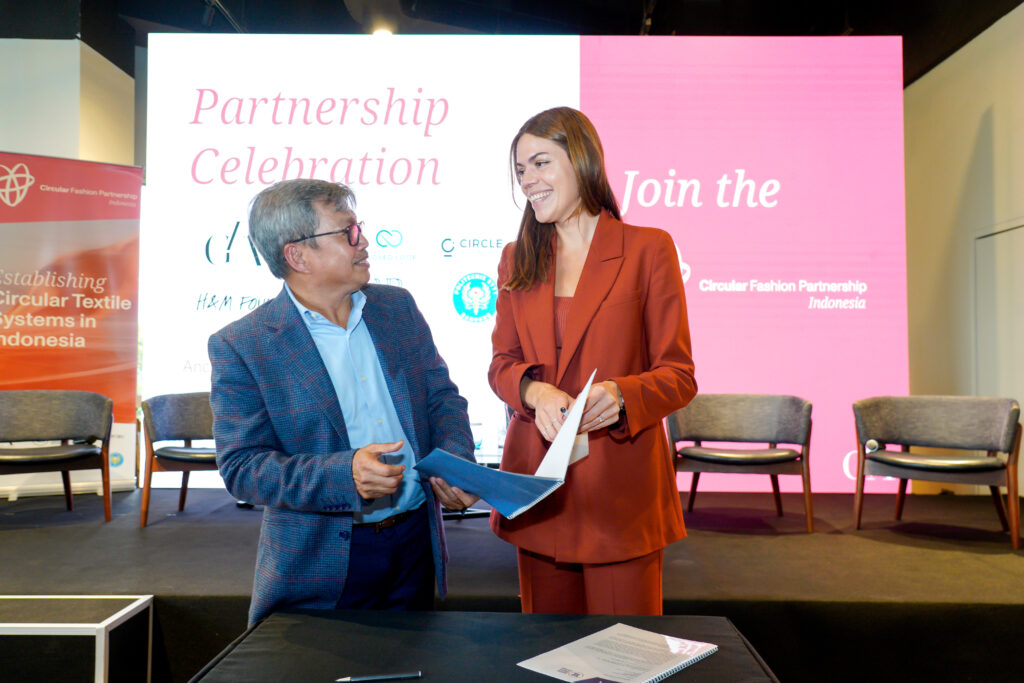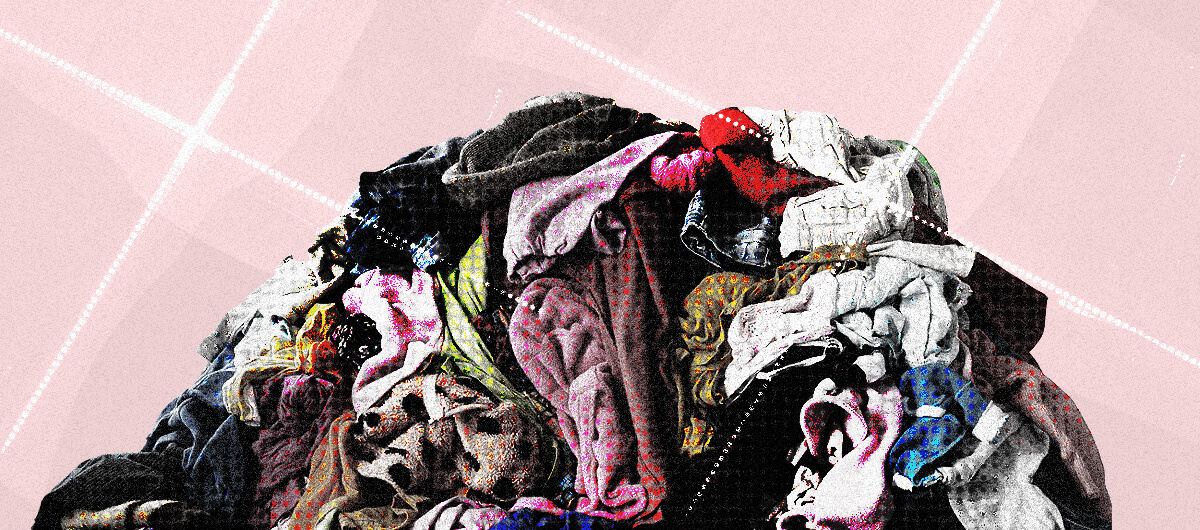Fashion
The Global Circular Fashion Forum: Transforming Waste into Opportunity

In June 2022, Global Fashion Agenda (GFA) launched the Global Circular Fashion Forum (GCFF) to tackle one of fashion’s most pressing challenges: post-industrial textile waste. This ambitious initiative emerged from the need to create a fashion industry that not only produces less waste but transforms it into value. By bringing together global brands, manufacturers, and policymakers, GCFF aims to scale sustainable systems across textile-producing nations and drive meaningful change from the ground up.
What is the GCFF?
Building a Circular Future for Fashion
With initial funding support from the Deutsche Gesellschaft für Internationale Zusammenarbeit GmbH (GIZ) and now founded by H&M Foundation, the Global Circular Fashion Forum (GCFF) envisions a future where fashion waste is minimised, and the industry aligns with the 1.5-degree climate pathway. GCFF’s mission is to create a long-term, scalable, and just transition to a circular fashion industry by establishing National Circular Fashion Partnerships (NCFPs) in key manufacturing nations. By 2027, GCFF aims to have NCFPs in Bangladesh, Cambodia, Vietnam, Indonesia, and potentially Kenya, India, or Turkey. Each partnership is designed to create measurable impact by reducing greenhouse gas emissions, supporting local economies through sustainable job creation, and replacing virgin textile inputs with recycled materials.
A Global Movement with Local Impact
As fashion continues to grow, so does its environmental impact, with millions of tonnes of textile waste generated each year. GCFF steps in to drive the industry’s transition towards circularity, establishing recycling as standard practice in garment-producing countries. The GCFF’s blueprint approach allows each country to adapt and customise circular systems to its unique local context. Each NCFP appoints a local country lead to ensure solutions are practical and sustainable within the national landscape. With the backing of stakeholders at every level – from policymakers and manufacturers to waste handlers – GCFF’s strategy ensures that circular solutions are built to last, creating economic resilience while scaling local recycling infrastructures. By enabling local ownership of recycling systems, GCFF offers a sustainable path forward for both manufacturers and brands to make low-carbon, circular production the industry standard.

Regional Highlights: National Circular Fashion Partnerships
Each National Circular Fashion Partnership (NCFP) contributes to GCFF’s overarching goal of establishing a circular fashion supply chain. By focusing on localised action and tailored solutions, each NCFP addresses specific regional needs while advancing GCFF’s mission to make circularity a standard practice across the fashion industry.
Bangladesh:
As GCFF’s pioneering effort, the Circular Fashion Partnership in Bangladesh has laid the groundwork for circular practices since 2022, despite recent challenges in the garment sector. To date, 36 facilities have actively engaged in the partnership, collectively segregating over 11,000 tonnes of post-industrial textile waste. Notably, over 5000 tonnes of this waste have been digitally traced to textile-to-textile recyclers, promoting transparency and driving resource recovery within the local supply chain.
Since 2023, GFA, BGMEA, and Reverse Resources have partnered with UNIDO and BESTSELLER to realise the BESTSELLER Switch to Upstream Circularity Pilot, a critical component of the SWITCH to Circular Economy Value Chains (SWITCH2CE) programme lead by UNIDO. This initiative promotes circular practices in the Textile & Garments sector, focusing on scaling up traceable textile recycling with local suppliers in Bangladesh. The BESTSELLER pilot captures and valorises large volumes of post-industrial textile waste, offering a model for sustainable and economically viable business practices. By advancing transparency and integrating innovative recycling systems, the pilot is helping reduce environmental impact and foster economic resilience within Bangladesh’s textile sector.
Cambodia:
The “Advancing Post-Industrial Textile Waste Recycling” pilot project in Cambodia has successfully completed its assessment, training, and implementation phases. In collaboration with GIZ, the initiative involves 12 brands and 21 factories and has diverted 3,000 tonnes of textile waste from landfills. This project is set to transition into the Circular Fashion Partnership: Cambodia, with next steps focused on corrective action plans, technical webinars, and peer learning sessions to reinforce sustainable waste management practices.
Indonesia:
Launched in October 2024, the Circular Fashion Partnership in Indonesia brings together stakeholders to establish systems for textile recycling that align with local needs. The Jakarta launch event gathered over 100 experts, signalling strong local commitment. In partnership with Rantai Tekstil Lestari, this initiative is developing a circular framework that integrates policy support and industry participation. During the launch, key industry and government figures highlighted the importance of collective action in achieving impact at scale.
Vietnam:
The GIZ led “Waste No More” project in Vietnam has facilitated eight in-person peer workgroups, bringing together 151 manufacturers and several waste facilities to promote best practices in waste sorting and data collection. A key development from this initiative was the pilot testing of the Pre-Qualification (PQ) Tool, designed to assess and qualify waste facilities. GCFF’s work in Vietnam has emphasised collaboration through structured working groups, with the goal of establishing a national vision for circularity in apparel by 2035. As part of the pilot, GFA led a working group that developed a ‘Vision and Roadmap for Circular Fashion in Vietnam,’ aimed at defining the country’s pathway towards a circular future. This roadmap outlines clear milestones to guide Vietnam’s journey towards circularity. Building on this foundation, GFA is now working with GIZ to transition into a full-fledged Circular Fashion Partnership for Vietnam.
Global Fashion Forum: Annual Exchange on Upstream Circularity
Join us at the upcoming Global Circular Fashion Forum: Annual Exchange on Upstream Circularity online event on 11 December, 2024 to learn more about our initiatives and engage with industry leaders. This online event will explore forthcoming legislation, industry progress and ambitions on circularity, the challenges the fashion industry has faced in 2024, and how they can be overcome. Furthermore, case studies from the GCFF’s Circular Fashion Partnerships in Bangladesh, Cambodia, Indonesia, and Vietnam will be highlighted, presenting opportunities for participation within the constantly evolving supply chain landscape.
Register here
As GCFF continues to expand its reach, it calls on brands, manufacturers, and recyclers to support its mission. By participating in GCFF’s NCFPs, stakeholders can contribute to creating a more sustainable industry.










